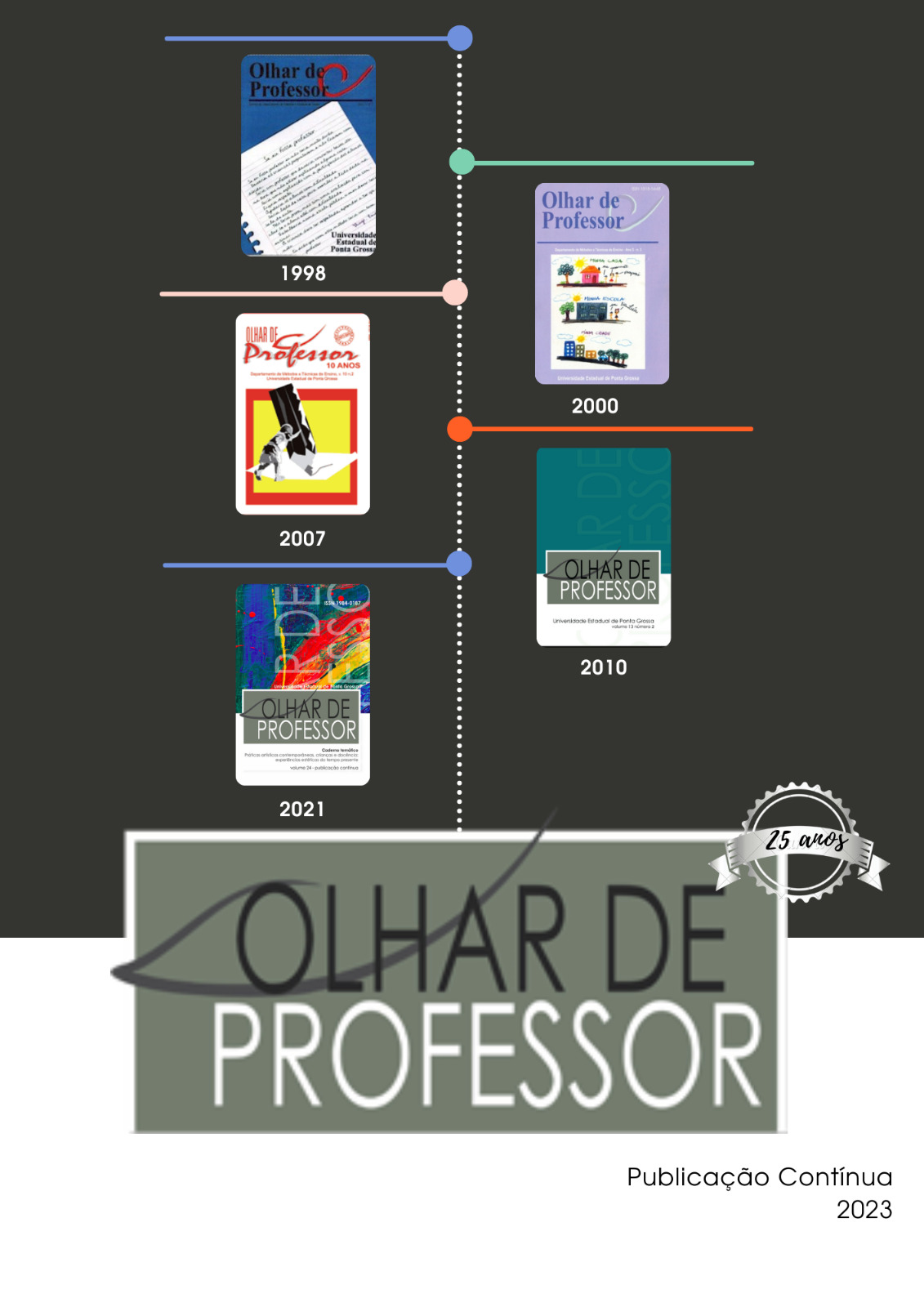Cultural identity, literacy and language teaching in Mozambique: (mis)matches between nationality and ethnicity
Main Article Content
Abstract
The discursive and pedagogical practices of literacy are linked to the autonomous model that conceives language as neutral, discrediting the individual demands. In this paper, from the perspective of the New Literacy Studies, it is elected, as an objective, to analyze how the national and ethnic identity is constituted in the pedagogical practices of teachers. The theoretical framework followed the approaches of Dias (2008), Hall (2000), Patel (2012) and Street (2014), among others. The agency materiality is made up of statements given by teachers analyzed in the light of that perspective, through a qualitative approach. The results suggest that the constitution of national identity relates to the domain of the Portuguese language and the ethnicity with the Bantu languages.
Downloads
Article Details

This work is licensed under a Creative Commons Attribution 4.0 International License.
Authors who publish in this journal agree with the following terms:
a) Authors keep the copyrights and concede the right of its first publication to the magazine. The work piece must be simultaneously licensed on the Creative Commons Attribution License which allows the paper sharing, and preserves both the author identity and the right of first publication to this magazine.
b) Authors are authorized to assume additional contracts separately, to not-exclusively distribution of the paper version published in this magazine (e.g.: publish in institutional repository or as a book chapter), with the author identity recognition and its first publication in this magazine.
c) Authors are permitted and stimulated to publish and distribute their papers online (e.g.: in institutional repository or on their personal webpage), considering it can generate productive alterations, as well as increase the impact and the quotations of the published paper.
d) This journal provides public access to all its content, as this allows a greater visibility and reach of published articles and reviews. For more information on this approach, visit the Public Knowledge Project, a project that developed this system to improve the academic and public quality of the research, distributing OJS as well as other software to support the publication system of public access to academic sources.
e) The names and e-mail addresses on this site will be used exclusively for the purposes of the journal and are not available for other purposes.

This work is licensed under a Creative Commons Attribution 4.0 International License.
References
BLOMMAERT, J. Citizenship, language and superdiversity: towards complexity. Journal of Language, Identity and Education, [s. l.], v. 1, n. 12, p. 193-196, 2013.
CASTIANO, J. P.; NGOENHA, S. E. A Longa Marcha duma “Educação para Todos” em Moçambique. 3. ed. Maputo: Publifix, 2013.
DIAS, H. N. As desigualdades sociolinguísticas e o fracasso escolar: em direcção a uma prática linguística-escolar libertadora. Maputo: Texto Editores, 2008.
FERGUSON, C. A. Diglossia. Word, [s. l.], v. 15, p. 325-340. DOI: https://doi.org/10.1080/00437956.1959.11659702
FIRMINO, G. A questão linguística na África pós-colonial: o caso do Português e das Línguas autóctones em Moçambique. Maputo: Texto Editores, 2006.
GOMÉZ, M. B. Educação Moçambicana: História de um Processo: 1962-1984. Maputo: Livraria Universitária, 1999.
HALL, S. Quem precisa da identidade? In: SILVA, T. (org.). Identidade e diferença: a perspectiva dos estudos culturais. Petrópolis: Vozes, 2000. p. 103-133.
JUNG, N. Letramento em um contexto multilíngue no Brasil: a articulação da escrita em português com as identidades de gênero social e etnicidade. EntreVer, Florianópolis, v. 3, n. 5, p. 103-105, jul./dez. 2013.
KHOSA, U. B. Ungulani Ba Ka Khosa: a literatura tem que transportar os valores das culturas e das línguas. [Entrevista concedida a] Rosália Estelita Gregório Diogo. SCRIPTA, Belo Horizonte, v. 14, n. 27, p. 187-193, 2º sem. 2010.
LOPES, A. A batalha das línguas: perspectivas sobre a linguística aplicada em Moçambique. Maputo: Imprensa Universitária da Universidade Eduardo Mondlane, 2012.
LOPES, A. Política linguística: princípios e problemas. Maputo: Livraria Universitária, 2012.
MARINHO, M. Letramento: a criação de um neologismo e a construção de um conceito. In: MARINHO, M.; CARVALHO, G. T. (org.). Cultura escrita e letramento. Belo Horizonte: Editora da UFMG, 2012. p. 68-100.
MOÇAMBIQUE. Constituição da República de Moçambique. Maputo: Imprensa Nacional de Moçambique, 2004.
NGUNGA, A.; BAVO, N. Práticas linguísticas em Moçambique: avaliação da vitalidade linguística em seis distritos. Maputo: Centro de Estudos Africanos, 2011. Disponível em: http://www.letras.ufmg.br/laliafro/PDF/Ngunga_Armindo_Praticas_linguistica_Mocambique_PORTUGUES. Acesso: 20 out. 2022.
OLIVEIRA, R. C. Os (des)caminhos da identidade. Revista Brasileira de Ciências Sociais, São Paulo, v. 15, n. 42, p. 7-21, 2000. DOI: https://doi.org/10.1590/S0102-69092000000100001
PATEL, S. Um olhar para a formação de professores de educação bilingue em Moçambique: foco na construção de posicionamentos a partir do lócus da enunciação e actuação. 2012. 266 f. Tese (Doutorado em Linguística Aplicada) – Universidade Estadual de Campinas, Campinas, 2012. Disponível em: http://repositorio.unicamp.br/Busca/Download?codigoArquivo=492860. Acesso em: 10 nov. 2022.
RIBEIRO, F. Educação e ensino de história em contextos coloniais e pós-coloniais. Mneme – Revista de humanidades, Caicó, v. 16, n. 36, p. 27-53, jan./jul. 2015.
RITA-FERREIRA, A. Fixação portuguesa e História pré-colonial de Moçambique. Lisboa: Instituto de Investigação Científica Tropical/Junta de Investigações Científicas do Ultramar, 1982.
ROCKWELL, E. Culturas orais ou múltiplos letramentos? A escrita em contextos de bilinguismo. In: MARINHO, M.; CARVALHO, G. T. (org.). Cultura escrita e letramento. Belo Horizonte: Editora da UFMG, 2010. p. 101-124.
SOARES, M. Prática de letramento e implicações para a pesquisa e para as políticas de alfabetização e letramento. In: MARINHO, M.; CARVALHO, G. T. (org.). Cultura escrita e letramento. Belo Horizonte: Editora da UFMG, 2012. p. 54-67.
STREET, B. Letramentos Sociais: abordagens críticas do letramento no desenvolvimento, na etnografia e na educação. São Paulo: Parábola Editorial, 2014.





